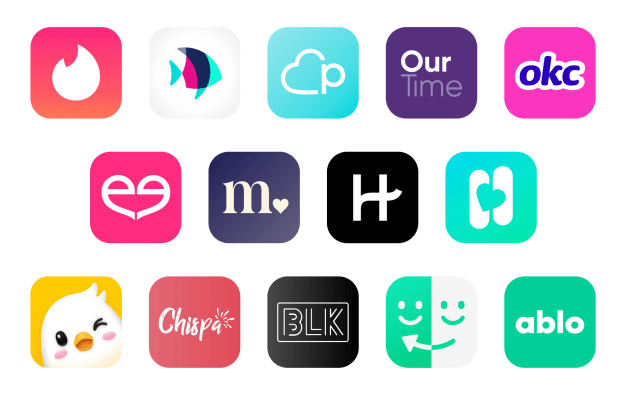Dating app maker and Tinder parent Match Group said during its Q2 earnings it will bring audio and video chat, including group live video, and other livestreaming technologies to several of the company’s brands over the next 12 to 24 months. The developments will be powered by innovations from Hyperconnect, the social networking company that this year became Match’s biggest acquisition to date when it bought the Korean app maker for a sizable $1.73 billion.
Since then, Match Group has been relatively quiet about its specific plans for Hyperconnect’s tech or its longer-term strategy with the operation, although Tinder was briefly spotted testing a group video chat feature called Tinder Mixer earlier this summer. The move had seemed to signal some exploration of social discovery features in the wake of the Hyperconnect deal. However, Tinder told us at the time the company had no plans to bring that specific product to market in the year ahead.
On Tuesday’s earnings, Match Group offered a little more insight into the future of Hyperconnect, following the acquisition’s official close in mid-June.
According to Match Group CEO Shar Dubey, who stepped into the top job last January, the company is excited about the potential to integrate technologies Hyperconnect has developed into existing Match-owned dating apps.
This includes, she said, “AR features, self-expression tools, conversational AI and a number of what we would consider metaverse elements, which have the element to transform the online meeting and getting-to-know-each-other process,” Dubey explained, without offering further specific details about how the products would work or which apps would receive these enhancements.
Many of these technologies emerged from Hyperconnect’s lab, Hyper X — the same in-house incubator whose first product is now one of the company’s flagship apps, Azar, which joined Match Group with the acquisition.
Dubey also noted that the work to begin these tech integrations was already underway at the company.
By year-end, Match Group said it expects to have at least two of its brands integrated with technologies from Hyperconnect. A number of other brands will implement Hyperconnect capabilities by year-end 2022.
In doing so, Match aims to transform what people think of when it comes to online dating.
To date, online dating has been a fairly static experience across the industry, where apps focus largely on profiles and photos, and then offer some sort of matching technique — whether swipes or quizzes or something else. Tinder, in more recent years, began to break out of that mold as it innovated with an array of different experiences, like its choose-your-own-adventure in-app video series, “Swipe Night,” video profiles, instant chat features (via Tinder’s product, Hot Takes) and others. But it still lacked some of the real-time elements that people have when meeting one another in the real world.
This is an area where Match believes Hyperconnect can help to improve the online dating experience.
“One of the holy grails for us in online dating has always been to bridge the disconnect that happens between people chatting online and then meeting someone in person,” Dubey said. “These technologies will eventually allow us to build experiences that will help people determine if they have that much elusive chemistry or not… Our ultimate vision here is for people to never have to go on a bad first date again,” she added.
Of course, Match Group’s positioning of the Hyperconnect deal as being more interesting because the innovation it brings — and not just the standalone apps it operates — also comes at a time when those apps have not met the company’s expectations on revenue.
In the second half the of 2021, Match Group said it expects Hyperconnect to contribute to $125 to $135 million in revenue — a financial outlook that the company admits reflects some pullback. It attributed this largely to COVID impacts, particularly in the Asia-Pacific region where Hyperconnect’s apps operate. Other impacts to Hyperconnect’s growth included a more crowded marketplace and Apple’s changes to IDFA (Identifier for Advertisers), which has impacted a number of apps — including other social networking apps, like Facebook.
While Match still believes Hyperconnect will post “solid revenue growth” in 2021, it said that these new technology integrations into the Match Group portfolio are now “a higher priority” for the company.
Match Group posted mixed earnings in Q1, with revenue of $707.8 million, above analyst estimates, but earnings per share of 46 cents, below projections of 49 cents a share. Paying customers grew 15% to 15 million, up from 13 million in the year-ago quarter. Shares declined by 7% on Wednesday morning, following the earnings announcement.


Recent Comments